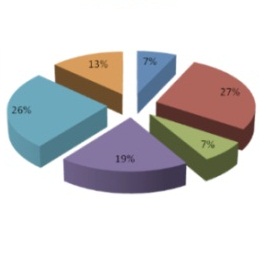Business Banking Checklist
 Success in managing finances and accounting significantly depends on the small business banking relationship that is established between an operating business firm and a banker. It’s not a secret to anyone today banks and other financial institutions serve as a foundation for controlling and performing daily operations in most organizations, and for your company it is also very important to get the best banking service. You must be a good planner to enjoy using convenient online business banking. But first this will require you to prepare necessary business documentation and choose a worthy financial institution.
Success in managing finances and accounting significantly depends on the small business banking relationship that is established between an operating business firm and a banker. It’s not a secret to anyone today banks and other financial institutions serve as a foundation for controlling and performing daily operations in most organizations, and for your company it is also very important to get the best banking service. You must be a good planner to enjoy using convenient online business banking. But first this will require you to prepare necessary business documentation and choose a worthy financial institution.
Perhaps, if you had some guide to successful planning of business banking accounts, then you could better organize your company’s finances and accounting system and establish mutually beneficial and long-term rapport with your banker. In this article we give you a list of the most critical tips organized into a business banking checklist. We hope this checklist will be convenient and useful for you. We appreciate your comments and feedback.
1. Take the Preliminary Steps to Business Banking
- Make a list of basic financial needs of your company. The first tip refers to the need of identifying all the financial needs your firm has for making daily operations. Typically every business has the following six basic financial needs:
- cash flow management
- financing
- accounting
- risk management
- succession planning
- financial planning
Among these needs, there are also other needs for consideration, such as task management, assets protection, estate management, savings, cash management, loan management. Be sure you have considered all the financial needs of your organization.
- Prepare documents necessary for opening a banking account. Such documents include articles of incorporation, a tax identification number, a statement of information and by-laws, a business name filing document, the owner’s personal photo identification. There can be other documents required for small business banking. To get the full list of the required documents please can contact your banker.
- Check the documents for errors before submitting. For successful business banking it is recommended to review all the paperwork for errors and misunderstanding before submitting the document to a financial institution. You must check such information as names, signatories, addresses and contacts, dates, highlighted liabilities and responsibilities, stamps and seals. It is easier to make corrections and change the information prior to submitting to the documents the banker and requesting for business banking services.
2. Choose the Right Bank for Your Company
- Make a list of the financial institutions available in your place. Usually all banks are specialized by the fields they operate in. For example, there can be banks that specialize in capital investments and construction projects only so they do not provide banking & accounting services for small-sized companies. That’s why you need to investigate the banking market, list all the bankers available in your community, and then chose those ones specializing exactly in your specific industry and give the most fitting and affordable business banking options and services (including interest rates, lending, deposit frequency and fees, credit card access). For example, at certain stages of the business cycle you may need to get a loan and financial advice, so be sure your banker can help you with this and fit into your business requirements.
- Check the service availability. One of the most important business banking tips is to make sure that your financial institution offers a wide range of services vital to successful planning and management of business operations. Such services include the following:
- accounts checking
- small business loans (loan service) and lines of credit
- night depository service
- commercial transactions monitoring
- a service for making accepted federal tax payments
- mobile banking service
You can use the Internet to enter the websites of the chosen banks and read the information on the business banking options and services they offer.
- Schedule an appointment to meet with your banker. Once you have selected the best banker, now you need to hold a meeting and discuss your future rapport. You can call the banker and arrange an appointment. Remember you will need to take all the necessary documents and personal photo identification with you when going to the appointment. The banker will review the documents, you will discuss available business banking services, and then you will fill in required application forms to set up business banking accounts needed by your firm.














